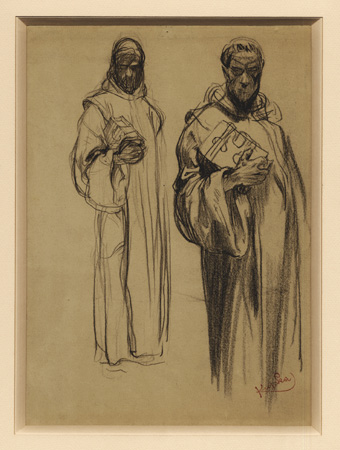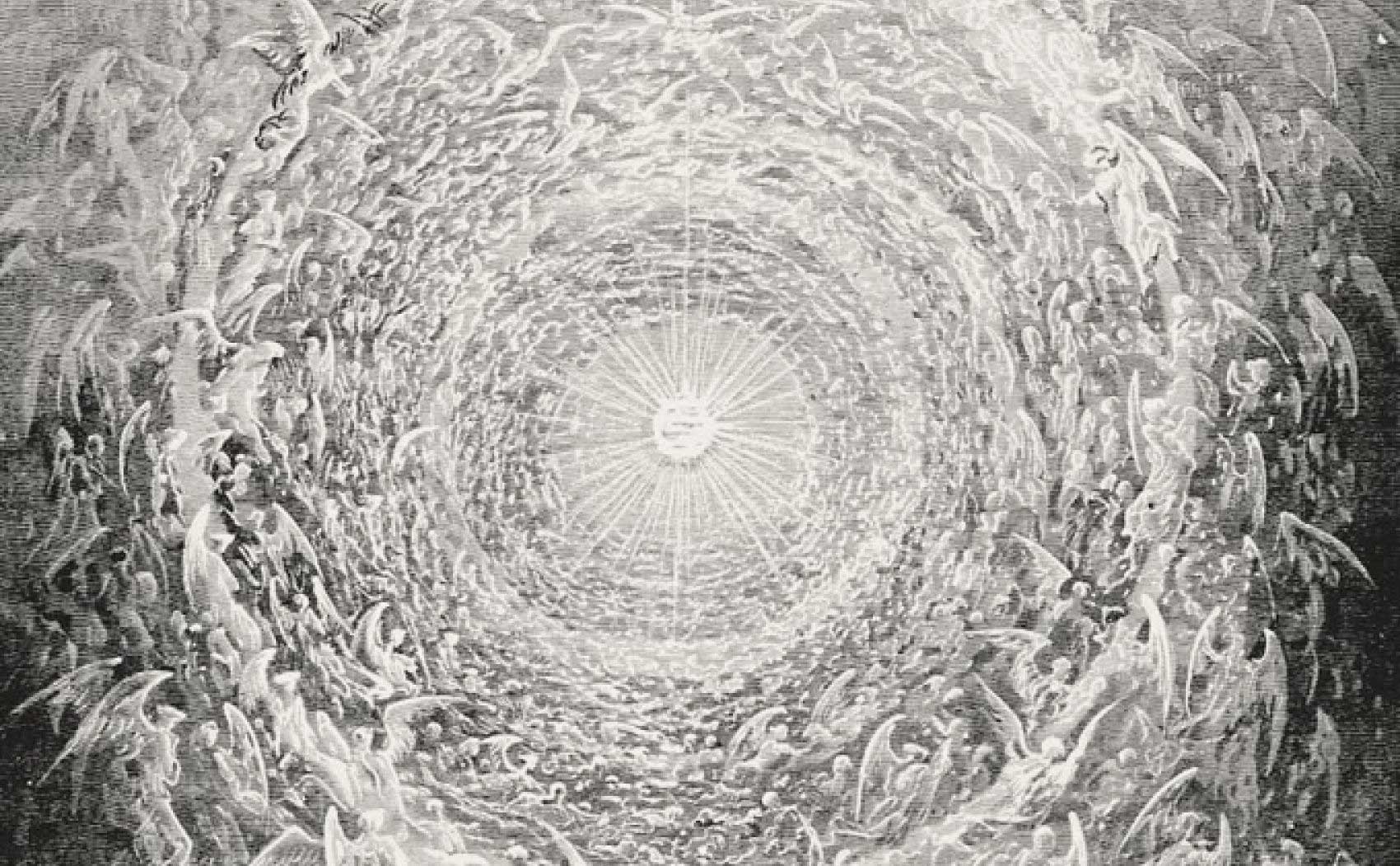It must be a passionate subject since Woody Allen, one of the rare American filmmakers still producing auteur features, has dedicated an entire movie to deal with this issue. I plan to see the film only after I have finished writing this essay and expressing my point of view.
Etymologically the word religion means “to unite”. Historically speaking, exactly the opposite has happened. Religions have divided peoples. Each one claims to be the BESTone, some pretend to be the ONLY one. This is why I am not religious and if I believe in some VALUES (and I do) I do not impose them on others. At the most, I propose to share them, but only if they are deeply convinced.
Do I believe in God? God is only a hypothesis and for me an improbable one.
I don’t deny that God exists, if only in the minds of those who believed in “him.”
Jean-Paul Sartre, who also claimed to be an atheist, had a nice image of such a hypothesis: that of the myriagon. No one has ever seen such a geometric form with ten thousand angles, but the very fact that we can conceive it makes us admit that it is theoretically possible.
In the iconography (excluding the religions that do not allow the representation of the Creator) God is always shown to us as an old patriarch with a white or gray, long beard.
One wonders why? The Bible says somewhere that God made man in his image and resemblance. We never saw God but if he made man in his image that means obviously that the image of God is that of a man. But are we sure it is a man? The Bible, again, says that God created Adam first. But all the fossils that were found in Africa a few millions years ago are of women! Could it be possible that God is a woman? In this case, of course, a black woman. When I said that to Omi, an intelligent and devoted Christian, who is an African-American lady, she did not show any surprise, and mentioned the title of a book I should read if I wanted to research more on the subject. I thought that my conclusion was original, but I was wrong; a new generation of scholars had preempted me. It was vital for their pride.
So much for God, but what about Christ?
His historical existence raises some doubts among rationalist historians.
Personally I find him a very sympathetic figure. In the history of art he is shown as a young, tall, blond, with long hair and a sweet smile. He sounds exactly as the description of a hippy from the 60’s, war resisters offering flowers to the police (which, by the way, is not their innovation, for we see it already in the 1904 La Paix of the Czech anarchist artist Frantisek Kupka ). Christ was also a Jew, by the way, whether they like it or not. And also a Jew who defied the powerful Roman invaders and the clergy of his own religion. We could continue for hours…
The tagline is Blacks, Jews, Christians, etc., all deriving from the same strain, so why fight each other?
I did not see Woody Allen’s Magic in the Moonlight, but I did read an interview that he granted to Ann Hornaday of The Washington Post, reproduced by The Oregonian of August 8, 2014, on p.4 under the title “Woody Allen: The artist as an adamant pessimist”. In it Mr. Allen declares: The religions of the world have been pernicious…”
Probably his condemnation is too harsh when taken out of context. Some progress has been made in this field, mostly thanks to the World Ecumenical Center started in Geneva more than half a century ago; but indeed, despite the agreements and the forgiveness some of them remain “economic and political movements” as Woody says. Arrogant and pitiless, I would add. Perhaps we should introduce some nuances and make some distinctions: collective and individual religiosity.
In other words, beware of religions as INSTITUTIONS but not deprive individuals from choosing God as a source of consolation for their pain or for giving a meaning to their life. After all ATHEISM can become a DOGMA in itself as we can see its failure in self-declared socialist countries.











